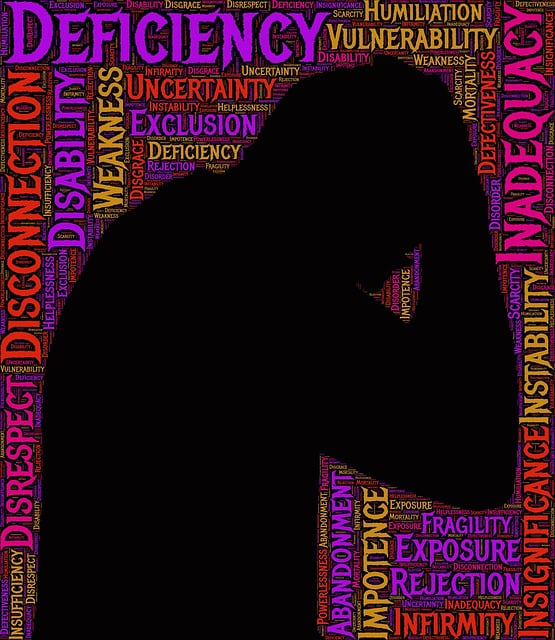Castle Rock Relationship Issues Therapy (CRRIT) offers a specialized therapeutic approach targeting interpersonal conflicts as root causes of mental wellness issues. By focusing on relationship dynamics, CRRIT aids individuals and couples in healthier interactions, stress management, burnout prevention, and reducing mental illness stigma. Program evaluation includes both direct measures (standardized questionnaires) for specific outcomes like anxiety relief, and indirect measures assessing broader impacts on life quality and risk assessment. Qualitative insights from interviews and surveys capture participants' emotional journeys and experiences, highlighting themes of hope, healing, growth, and challenges. Continuous evaluation ensures CRRIT's effectiveness through participant feedback analysis, leading to refined techniques and activities for enhanced client outcomes and satisfaction.
Mental wellness programs require rigorous evaluation methods to ensure their effectiveness, particularly when addressing complex issues like Castle Rock Relationship Issues. This article explores a comprehensive approach to evaluating such programs, from understanding the foundational principles of Castle Rock Relationship Issues Therapy to employing both qualitative and quantitative measures.
We delve into direct and indirect assessment techniques, qualitative insights from participant experiences, and strategies for continuous improvement, offering valuable guidance for enhancing mental wellness initiatives.
- Understanding Castle Rock Relationship Issues Therapy: A Foundation for Program Evaluation
- Assessing the Impact: Direct and Indirect Measures in Mental Wellness Programs
- Qualitative Insights: Uncovering Participants' Perceptions and Experiences
- Continuous Improvement: Using Evaluation Findings to Enhance Castle Rock Relationship Issues Therapy Programs
Understanding Castle Rock Relationship Issues Therapy: A Foundation for Program Evaluation

Castle Rock Relationship Issues Therapy (CRRIT) is a therapeutic approach designed to address interpersonal and emotional challenges that often underlie mental wellness issues. This method focuses on understanding and resolving conflicts within relationships, aiming to create healthier dynamics and improve overall well-being. CRRIT acknowledges that many mental health concerns stem from or are exacerbated by relationship problems, such as burnout prevention, stress management, and even reduction of the stigma associated with mental illness.
By examining these interpersonal issues, CRRIT provides a robust foundation for program evaluation in mental wellness initiatives. It enables therapists to assess not just individual symptoms but also the systemic factors contributing to mental illness. This holistic perspective is crucial in designing effective interventions tailored to address specific relationship challenges, thereby enhancing the overall success of mental wellness programs.
Assessing the Impact: Direct and Indirect Measures in Mental Wellness Programs

Evaluating the impact of mental wellness programs is a multifaceted process that encompasses both direct and indirect measures. Direct measures focus on assessing specific outcomes directly related to the program, such as improvements in symptoms of depression or anxiety, as measured through standardized questionnaires. These tools provide immediate and quantifiable data, offering valuable insights into the effectiveness of interventions. For instance, a Castle Rock Relationship Issues Therapy program could utilize direct measures to track reductions in conflict resolution scores or improvements in emotional regulation among participants.
Indirect measures, on the other hand, delve deeper into broader impacts that may not be immediately apparent. They examine changes in individuals’ overall mental wellness, life quality, and even their risk assessment for mental health professionals. By incorporating indirect measures, such as changes in work performance or social interactions, programs like Castle Rock Relationship Issues Therapy can offer a more holistic view of participants’ progress. This approach recognizes that anxiety relief is not solely a symptom to be treated but a key component of overall mental wellness and well-being.
Qualitative Insights: Uncovering Participants' Perceptions and Experiences

Qualitative insights offer a powerful lens to understand participants’ perceptions and experiences within mental wellness programs, such as Castle Rock Relationship Issues Therapy. Through in-depth interviews, focus groups, or surveys, program evaluators can gain valuable firsthand accounts of how individuals engage with and benefit from various interventions. This approach allows for a nuanced exploration of emotional journeys, identifying themes of hope, healing, and growth alongside challenges faced during therapy.
For instance, a Community Outreach Program Implementation may reveal profound shifts in participants’ mental health awareness and resilience building. Qualitative data could highlight the impact of supportive relationships forged through group sessions or one-on-one counseling, providing actionable feedback for program refinement. By listening to these narratives, evaluators can ensure that Castle Rock Relationship Issues Therapy remains responsive to the evolving needs of its community, fostering a safe space where individuals find their voices and embark on transformative journeys towards mental wellness.
Continuous Improvement: Using Evaluation Findings to Enhance Castle Rock Relationship Issues Therapy Programs

Continuous evaluation is a cornerstone of enhancing Castle Rock Relationship Issues Therapy programs. By systematically analyzing participant feedback and treatment outcomes, therapists can identify areas for improvement, ensuring the program remains effective and tailored to clients’ needs. This iterative process allows for refinement of techniques, activities, and overall delivery methods, fostering a more nurturing and supportive environment.
Leveraging evaluation findings, therapists can integrate strategies that promote self-care routine development for better mental health. Additionally, addressing emotional regulation challenges and trauma support services becomes more targeted and efficient. Ultimately, this cycle of assessment and adjustment strengthens the Castle Rock Relationship Issues Therapy, contributing to improved client outcomes and satisfaction.
The evaluation of mental wellness programs, particularly Castle Rock Relationship Issues Therapy, is a multifaceted process. By combining direct and indirect measures with qualitative insights, we can comprehensively assess their impact. Understanding participants’ perceptions and experiences enriches our approach, enabling continuous improvement. Integrating these evaluation methods ensures that Castle Rock Relationship Issues Therapy programs remain effective and tailored to the evolving needs of those seeking support for relationship issues.













